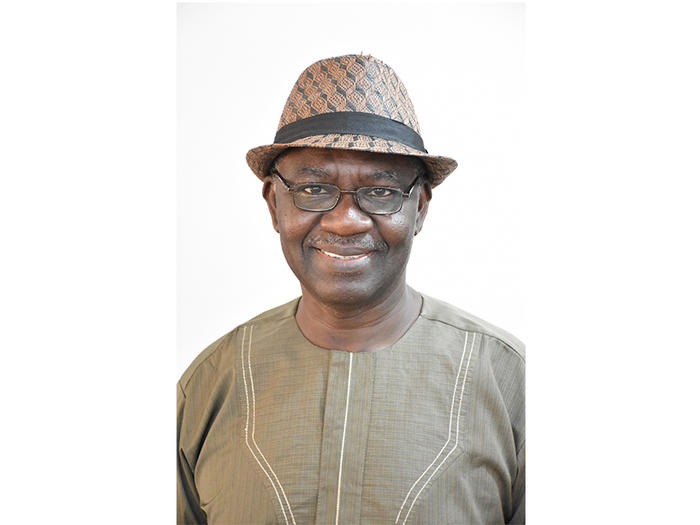Universities, through their extensive research capabilities and activities, have a critical role in providing the necessary knowledge, evidence-base, solutions and innovations. This suggests that universities occupy a unique position within society. Lately, universities are increasingly re-thinking their role in the twenty-first century and looking to be equally more responsive to societal needs and to become agents of change towards solving global challenges. With a broad emphasis on the creation and dissemination of knowledge, universities have long been powerful drivers of global, national and local innovation, economic development, and societal wellbeing. The University of Cape Coast (UCC) has embraced this mandate by crafting a research agenda which resonates with national (Agenda 2057) and supranational objectives (AU Agenda 2063, all 17 Sustainable Development Goals - SDGs). The UCC 2018-2022 Research Agenda is a blueprint of how our research work fits seamlessly with the broader vision of UCC and national development trajectory. The UCC Research Agenda also underscores the need for interdisciplinary collaboration within and with our external partners in our collective bid to comprehensively address the SDGs. The UCC Research Awards and Grants (RAG) ceremony is a platform to celebrate research activities closely aligned with the thematic areas in the Research Agenda and interests in departments, schools, and colleges across the University. The SDGs cover a wide range of complex social, economic, and environmental challenges that are evident, especially in sub-Saharan Africa. Addressing them will require transformations in how our societies and economics function and how we interact with our planet. In this context, education, research, innovation and leadership will be essential in helping us address these challenges. UCC and allied institutions, with an extensive mandate around the creation and dissemination of knowledge and unique position within society, have critical roles to play in the achievement of the SDGs. The benefits that will accrue to UCC in engaging with the SDGs are myriad. It will help UCC to demonstrate its impact and relevance to society, capture demand for SDG-related education, build new partnerships, access new funding streams, and define UCC as a university that is responsible and globally aware.
UCC is committed to promoting research for national development by responding to the needs of industry and policy-makers and transforming livelihoods. In this regard, the University has instituted some interventions including an award scheme which is implemented annually by the Directorate of Research, Innovation and Consultancy (DRIC) to motivate and honour faculty members who have distinguished themselves in scholarly research or shown potential to engage in impact-oriented research.
In total, we received 90 applications for the 4th Call compared with 67 in the 3rd (2018) and 62 in the 2nd (2017) Call for applications for the 37 Research Support Grants (RSGs) on offer. This represents an increase of 34.3% in the number of applications received during the 3rd Call. For easy reference, the details of the 37 RSGs, according to the Call, are as follows:
- 15 each for Individual and Group-led RSGs – three (3) per category for each college;
- 5 for Inter-departmental RSG – one (1) per college; and
- 2 for Policy and practice-oriented RSG – University-wide.
This is the Fourth Research Awards and Grants (RAG) Ceremony, and it will provide a platform for research awardees and grantees to share their research output and experiences with policy-makers, academics, industrialists, civil society and the general public for the purpose of national socio-economic transformation.
Research Teams & Thematic Areas of Successful Grantees
University of Cape Coast Funded Research Projects 2018-2019 Academic Year
| Research Team(s) | Title of Research Project | Thematic Area(s) | Grante Offered (GHS) |
|---|---|---|---|
| Dr. Nancy Innocentia Ebu Enyan | A Multi-site Study of the Experiences, Motivators and Inhibitors to Precepting Nursing Students within the Cape Coast Metropolis of Ghana | Health Behaviour | 6,982.00 |
| Dr. Issahaku Adam | Attitude and Behavior towards Single-use Plastics among Residents in Cape Coast | Environmental Sanitation | 5,000.00 |
| Dr. Michael Boakye-Yiadom | Students’ Satisfaction of the University of Cape Coast Experience | Higher Education Quality Assurance | 5,000.00 |
| Dr. Moussa Traore | The Effects of Telenovela on Ghanaian Viewers | Media Studies | 5,000.00 |
| Dr. Francis Kumi | Design, Construction and Performance Evaluation of Chimney Solar Dryers for Chilli | Agriculture Technology and Food Preservation | 6,962.00 |
| Dr. Abednego Kofi Bansah | Making Healthful Food Choices: University Employees Perception on Nutritional Information in Restaurant Menu | Nutrition and Health | 4,862.00 |
| Dr. Nazir Kizzie-Hayford | Effects of Storage Conditions on Physicochemical and Enzymatic Properties of Tiger Nuts and on their Fermented Yoghurt-like Systems | Food safety and Health | 7,000.00 |
| DR. Ivy Kesewaa Nkrumah | Cognitive and Linguistic Processing in Bilingual Memory as EvidenceDdby Positive and Negative Priming Effects | Education and Psychology | 5,000.00 |
| Ms. Dorothy Ewurabena Addo-Mensah | The Experiences of Caregivers in Managing People Living with Epilepsy: A Case Study of Anomabo Sub District | Health Behaviour | 7,000.00 |
| Dr. Salome Amissah-Essel | Hosting the Mentally Challenged: A Narrative Study on the Experiences of a Female Caregiver Managing a Mental Home in Ghana | Education and Health Behaviour | 4,999.00 |
| Dr. Isaac Asiamah | Development of Gas Chromatograph-mass spectrometry (GC-MS) Methods for Detection of Pyrolizdine Alkaloids (PAs) in Herbal Medicines on the Ghanaian Market | Phytochemistry | 7,000.00 |
| Dr. Patrick Adu | Evaluation of Inter-laboratory Comparability and Accuracy of Hematology Results | Laboratory Science/ Quality Control /Assurance | 6,820.00 |
| Dr. Isaac Dasmani | Nutritional Impact of Food Crops Diversification in Climate Smart Agriculture: Empirical Study of Farm Households in Central Region | Agricultural Economics | 8,000.00 |
| Physio-chemical Properties and Screening for Clostridium Botulinum in Honey Produced in Ghana | Food safety, Nutrition and Health | 9,000.00 | |
| Utilization of Water Hyacinth (Eichhornia crassipes) Plant as Feed for Rabbits and its Effects on Carcass and Meat Quality | Food security and Nutrition | 8,995.00 | |
| Formulation and Efficacy Assessment of a Polyherbal Wound Healing Formula from Heliotropium indicum and Adiatum capillusveneris | Phytochemistry and Health | 9,000.00 | |
| Identification and Characterisation of Agents of Piroplasmosis in the Cape Coast Metropolis of Ghana | Vector Biology and Health | 8,000.00 | |
| Molecular Characterisation of Occult Hepatitis B Virus Infection in HIV-positive Patients’ Initiation Antiretroviral Therapy in Tertiary Hospitals in Ghana | Health | 8,000.00 | |
| Child Work, Travel Distance to School Attendance: Implication for the Cognitive Skills of the Ghanaian School Child | Economics of Education | 8,000.00 | |
| Teachers’ and Pupils’ Awareness and Use of Safety Net Structures for Abused Pupils’ in Cape Coast Metropolis, Ghana | Education and Child Psychology | 8,000.00 | |
| Family-based Index Client Testing for HIV: Barriers and Opportunities among Infected Clients in Cape Coast | Health | 7,534.00 | |
| Exploring the Drivers of Political Vigilantism in Ghana | Political Science | 7,940.00 | |
| Connecting Industries to Research Output: The Role of the Academic and Research Libraries in Ghana | Library and Information Science | 9,000.00 | |
| Students’ and Tutors’ Perception of Tutoring Effectiveness in Distance Education at the University of Cape Coast: Implications for Educational Practice | Quality Evaluation of Distance Education | 30,000.00 | |
| Intermittent Preventive Treatment in Pregnancy (Iptp) Uptake, Microbiomes and Immune Development: A Mother-Neonate Pair Cohort Study in Cape Coast, Ghana | Health | 29,995.00 | |
| The Lived Experience of Immigrants who Travel Abroad: A Phenomenological Inquiry | Education and Psychology | 30,000.00 | |
| Towards a Framework for Mainstreaming Refugee Assistance into Local Development in Refugee Hosting Communities | International Migration | 29,270.00 | |
| Application of alflasafe GHO2 and Combined Biomass-Solar Dryer to Control Aflatoxin Contamination in Maize in Ghana | Agricultural Technology and Food Safety | 30,000.00 | |
| Ghana Beyond Aid: Examining Cost of Tax Compliance and Tax Incentives | National Policy Evaluation | 50,000.00 | |
| Exploring Soybean (Glycine max L.) Resilient Genotypes towards Improved Production in Underutilized Savannah Agro-Ecological Zones of Ghana | Food and Nutrition Security | 49,764.00 |
Best Researcher Awards (BRAs)
- Best Evolving Reseacher
- Dr. Ernest Teye (GH 4,000.00, a Plaque, and a Certificate of Recognition)
- Best Evolved Researcher
- Dr. David Teye Doku (GH 6,000.00, a Plaque, and a Certificate of Recognition)
Best College Level Researcher Awards (BCRAs) (GH 3,000.00 each, a Plaque, and a Certificate of Recognition)
- College of Health and Allied Sciences (CoHAS)
- Dr. Stephen Ocansey
- College of Agriculture and natural Sciences(CANS)
- Dr. Stephen Moore
- College of Education Studies (CES)
- Dr. Christopher Kwaah
- College of Humanities and Legal Studies (CHLS)
- Dr. Issahaku Adam









